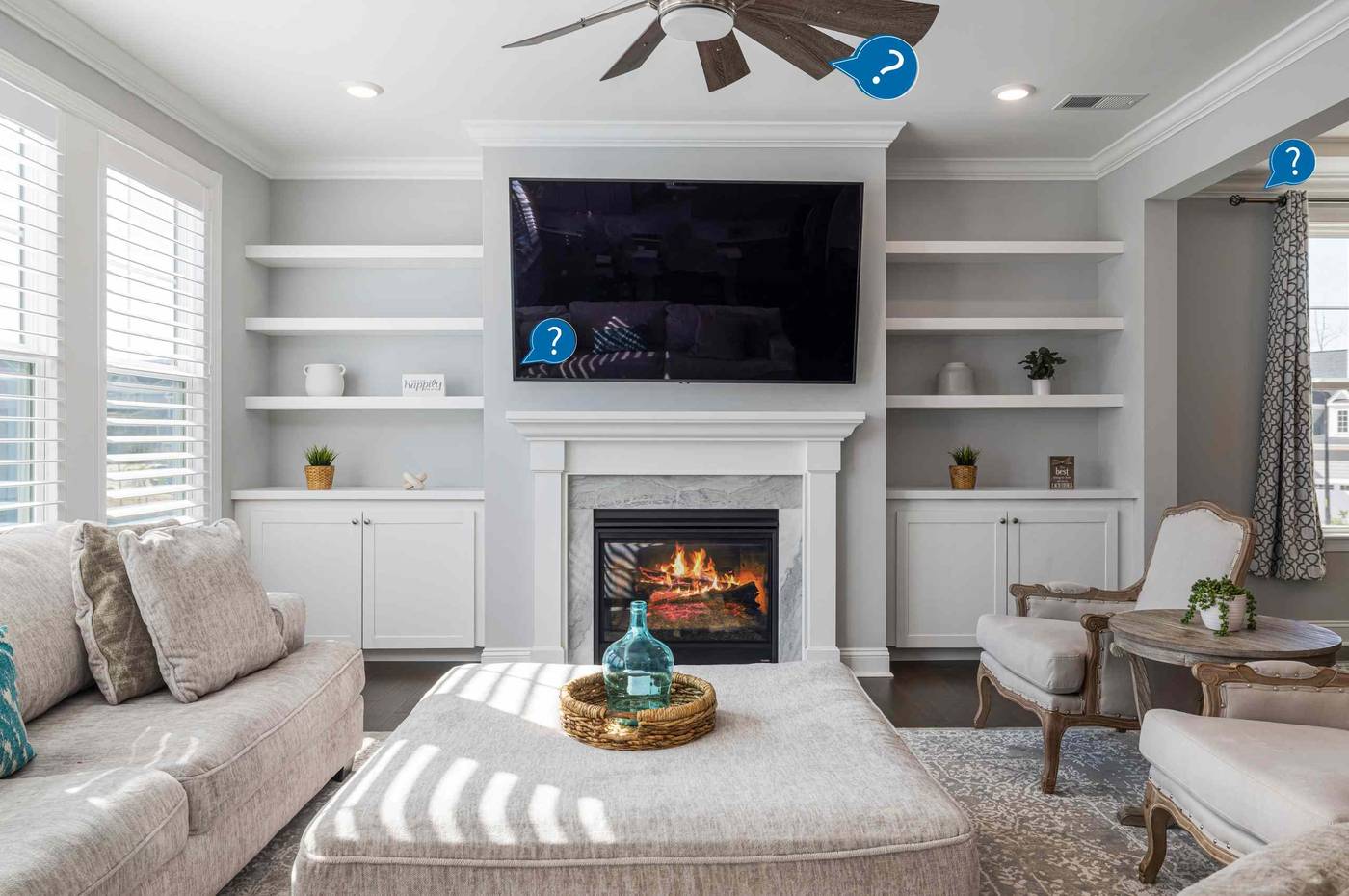So you’ve fallen in love with a house—and its sparkling dining room chandelier. Is that chandelier yours when you close on the deal? It depends. On the other hand, if you are the seller and want to hold onto the sparkling chandelier, there are some important things to consider.
Fixtures: A Brief Definition
A fixture is personal property attached to real estate property. While the definition varies from state to state and should be addressed in a purchase agreement, if the object needs nails, screws, bolts, glue, pipes, or cement to install in the home, it is usually considered a fixture, which means it conveys with the sale.
Determining What is a Fixture and What Isn’t
Something like a curtain rod purchased by the homeowner may be personal property at first, but once it is affixed to the wall, it becomes a fixture of the home. There are several grounds for determining what can be considered as real property (items attached to the property) versus personal property (sometimes called “chattel”). Sometimes a real estate agent may use a process called “MARIA” to help a homeowner determine what can stay and what can go. Below are some of those guidelines:
- Again, if you need tools to attach the item to the house, it is typically a fixture that will stay once the sale goes through. Curtain rods, mounted cabinets, wired lights, and towel racks fall into this category.
- Is the item integral to the property? Let’s say you have an outdoor grill that is plugged into the gas line. That grill must stay, but something such as a freestanding fountain can be taken with you when you move (emphasis on freestanding – if it’s cemented to a patio, that may change its status). Freestanding bookshelves, curtains, and televisions not affixed to a wall are all removable unless they are part of the contract.
- When the item was installed, was it intended to be temporary or permanent? A refrigerator with a cabinet door in front of it would be a fixture, but a freestanding dishwasher that can be easily moved out would not.
- What was in the agreement between the buyer and seller? In the course of negotiation, items will come up for discussion, and the parties will need to hash it out. Specific information needs to be included in the purchase contract in order to avoid any disputes about items considered as fixtures.
Gray areas include appliances, freestanding playsets or storage sheds versus “hard” elements like an affixed pergola or gazebo, wall mirrors, security systems mounted on brackets rather than with cameras directly affixed to walls, and wall-mounted televisions. All are negotiable.
What if I Want to Keep the Fixture?
Is that sparkling chandelier in the dining room from a treasured trip to a New Orleans antique store, or was it something the builder picked out from the bargain rack at a big box store?
If the item in question is important to you to keep, you may want to consider installing a different item in its place before you put the house on the market. If you are inclined to sweeten a deal, however, you may want to leave it if you think a potential buyer may become equally enthralled. As with all things in real estate, the market and motivation are key.
Make Your Purchase Agreement Solid
Developing an exclusion list is one critical component of a seamless sale. Take careful inventory of the property and decide what you can live without and what you must have.
Remember that regulations around real property transactions vary depending on where you are selling or buying. Your purchase agreement is the main element in determining what fixtures are included in a sale. Consulting an experienced local real estate professional can be vital to making sure you’ve covered everything—expert advice can keep surprises to a minimum.
If you are a buyer, seller, or investor preparing for your next real estate transaction, give the Attorney’s Title Group team a call or reach out to us online. From residential, commercial, and refinance closings to real estate document preparation and review, we’ve got you covered! With locations in Little Rock and Conway, we can assist throughout all of Arkansas as well as Tennessee and Mississippi.
Contact us at: (501) 734-2233 or email: atg@youratg.com.

